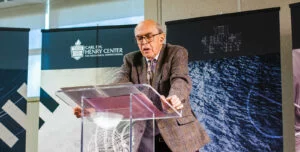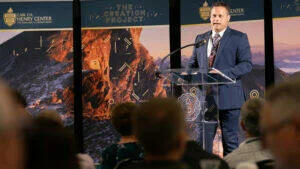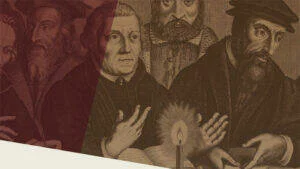I recently received a phone call from a fellow pastor asking for help. “I’m preaching through Genesis 1–11,” he anxiously explained to me, “and I need some advice on the whole creation and evolution thing.”
The sound of his voice let me know he was worried about how this might go down in his congregation. Understandably so, since there is hardly a more controversial subject these days than human origins.
Pastors are the church’s frontline theologians. Pastors, however, shouldn’t shy away from engaging with controversial issues. Indeed, those responsible to bring God’s word to bear on the world need to take every thought captive to Christ, and the more controversial an issue, the more important it is for pastors to deal with it. Pastors are the church’s frontline theologians. As such they are uniquely situated to grapple with the myriad of issues involved in the question of origins without losing the forest from the trees. But they’re also equipped to model for their congregations the intellectual virtues of humility and hospitality, so that this issue doesn’t generate more heat than light within the body. In short, pastors are well-suited to navigate the Scylla of blissful ignorance and the Charybdis of hotheaded contention, so their congregations don’t crash on the shoals of a divisive issue to the detriment of their own growth and witness.
Human Origins & The Life of the Local Church
Several years ago, rumor began circulating within my congregation that the Senior Pastor was of the opinion that “we came from apes.” This alarmed some who held a different view on these matters, and thus required that I and the leadership wrestle with the question in light of our church’s ecclesial tradition and articles of faith, as well as the word of God itself. While we might have been tempted to view this as a distraction from the business of ministry, we agreed this was a good investment of our time and energy, and that was for several reasons.
 First, the question of human origins is a major cultural and apologetic issue for the church. If you get National Geographic, you’ll find in almost every issue something related to origins and evolution. Or if you follow the news closely, you’ll regularly read about new archaeological discoveries that have made headlines, and that present a fresh challenge to a traditional Christian understanding of origins.
First, the question of human origins is a major cultural and apologetic issue for the church. If you get National Geographic, you’ll find in almost every issue something related to origins and evolution. Or if you follow the news closely, you’ll regularly read about new archaeological discoveries that have made headlines, and that present a fresh challenge to a traditional Christian understanding of origins.
Second, human origins is a major discipleship issue, especially for our young people. It’s not at all uncommon to hear of students from the church’s youth group losing their faith in college as a result of gaining exposure to evolutionary biology and its attendant worldview.
Third, human origins is a fascinating issue in its own right, requiring that one develop some facility across a range of different disciplines, from the life-sciences and history to theology and exegesis. It’s a challenging and invigorating intellectual workout!
For the Good of the Church
Within our church, I held a view not shared by everyone. Thus I needed to articulate and, yes, argue for my own position. As part of this process, I read dozens of books and journal articles to get up to speed on the issues. This took me the better part of three months, at the end of which I produced a fifteen-page white paper for our church leadership. Pastors, as ministers of God’s word in this world, are on the frontlines of theological engagement, for the good of the church.This was an invaluable exercise because it not only gave me an opportunity to express my views in writing, but it also provided an occasion for our leadership team to grapple with the biblical, theological, hermeneutical, historical, cultural, scientific, and philosophical issues surrounding the question of origins. In the end, regardless of where we came down on the issue, every one of us came away sharper because of the process.
Preparing and discussing a white paper, however, wasn’t the only or even the most important task. I also needed to provide guidance on how to think about this issue in light of Scripture and our tradition, as well as in regards to the diversity of views within our church. I therefore prepared what we called our “Elder Affirmations on Creation & Evolution.” This was an effort to articulate in a series of short, succinct statements how to live together as Bible-affirming believers who hold different views on this issue yet stand together within a particular stream of evangelical Christianity. This was, of course, no easy task, but it was profitable.
Pastors, as ministers of God’s word in this world, are on the frontlines of theological engagement, for the good of the church. They’re also ideally positioned and uniquely equipped to help congregations deal with the major intellectual issues of the day in a way that not only sharpens thinking, but shepherds souls.A version of this post appeared in Kevin Vanhoozer and Owen Strachan, The Pastor as Public Theologian: Reclaiming a Lost Vision (Baker Academic, 2015). For this is the ultimate goal of the pastor








Comments
Be the first one to make a comment!